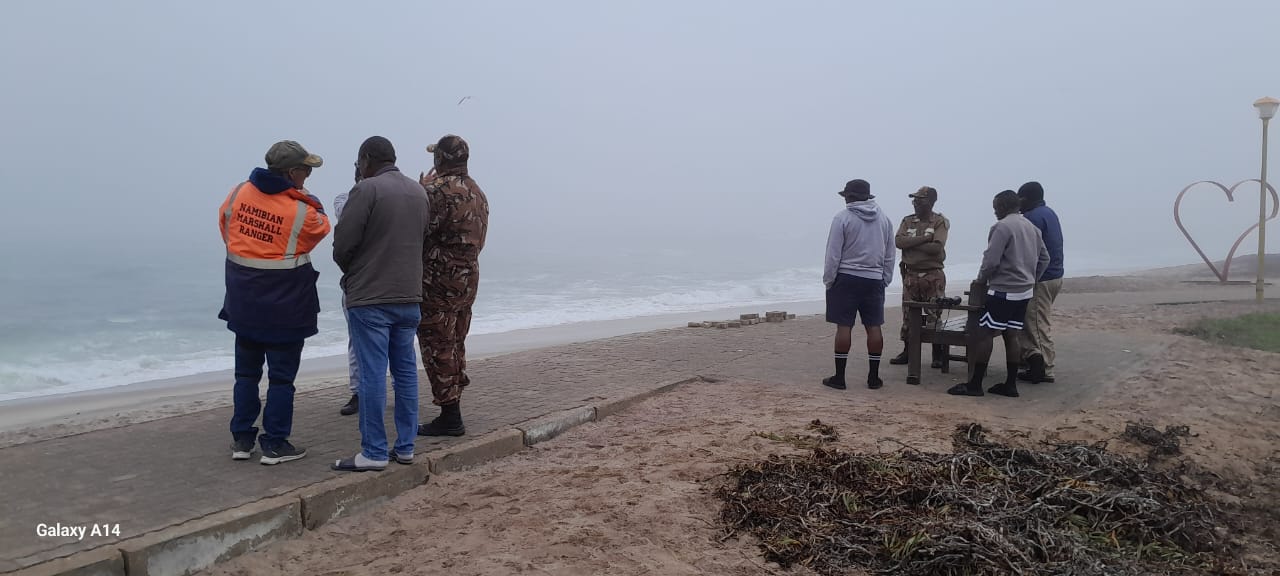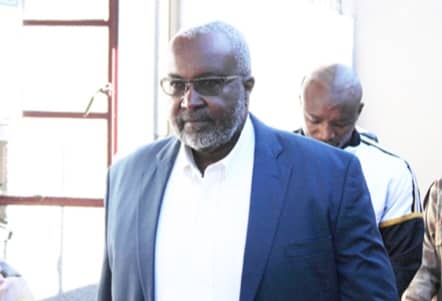Comrades MY eleven-year-old daughter, Lindi, rightly protests that she doesn’t understand the stuff that I write in this page.
And now, comrades have joined the discussion with long essays against my weekly missive arguing along the same lines, yet protesting against the “un-revolutionary” content of my column. On the first score, I apologise to the comrades if they stop reading my stuff after two paragraphs due to my style.Yet, I must admit that I am humbled by the intent and the intellectual enthusiasm of those who contest the stuff I say about Namibia and Africa.It is the stuff of which democracies are made.It is also the stuff for which Hendrik Witbooi, Hosea Kutako, and later Sam Nujoma opted to resist against a colonial and an apartheid regime whose raison d’etre was to exclude blacks from the affairs of their country.So, instead of throwing stones at each other, we need a civilised dialogue within this democratic space, irrespective of our intellectual, ideological and political persuasions.As a caveat, comrades should take note that intolerance provides fertile ground for the states to fail, of which Zimbabwe is the most recent illustration.On that score, the titles of their essays in the Government newspaper were revealing: ‘Hengari out of tune with African politics’, and another a while back titled ‘Hengari a coconut academic caricature’.I am not too sure if this should be the tone of our future ministers (hopefully they will learn along the way).It would have been easier to discuss these comments about my column (or to be more exact about me), but there is a litany of incomprehensive arguments.Critical journalism might have saved these articles.Thus, my riposte is reluctant.But in as far as my best guesses with regard to the intent of the comrades, two salient arguments are discernible.First, the argument is made that I am not writing for my audience: which in this case, if I understand one comrade well, ought to be the whole of Namibia.After all, this paper is read, in his words, on the street corners of this country.Therefore, my language should be understood at every corner.As a former high school teacher, I would accept that my language must be accessible to an array of readers, including the comrade in question.However, I am not too sure if I would be succeeding in my objective: to write in a manner that probes intellectually, that educates and that links the theories consumed as a political scientist to Namibian realities.Despite my ambition to reach many, there are constituencies that could inevitably be left behind, including comrades.It is the collateral damage of writing.The second inference is made that writing the way I do amounts to an African who is “out of tune with African politics”.Oftentimes, some of these charges come from comrades whose knowledge of the continent tend to be far more limited than those they criticise as ‘out of touch’.They haven’t read and understood Frantz Fanon well, nor have they contextualised his work or read the heritage of Fanon in Achille Mbembe’s post-colonial interrogations of the African condition.On geography, I would argue that a cosmopolitan city like Paris could teach a Herero student from Namibia far more about Africa than emotion-laden discussions with finger-waving “Africanist comrades” at the party headquarters.I have learned far more from my Bamiléké or Bassa friends from Cameroon about their traditions, their literature, their cuisine and their politics.It is also in Paris where intellectual exchanges with the Soninké and Serer from Senegal or the Bambara from Mali take place on a regular basis with a Namibian student Chez Moussa l’Africain around la thecké or Poulet Yassa (culinary delights from Côte d’Ivoire and Senegal!).So, Paris is not a handicap in my intellectual reasoning on Africa.Even if I write from Paris as opposed to a hill in Opuwo as a comrade charged, my legitimacy to raise issues as a descendant of a people brutalised by genocide should not be reduced to such banal arguments.Failure to do so amounts to what Achille Mbembe refers to as “la radicalité du questionnement” (radical questioning of the “other”).Essentially, radical questioning of the other amounts to the absence of dialogue tout court.This unsophisticated way of reasoning means that once we have called others “unpatriotic” (for having spoken about Nelson Mandela instead of Sam Nujoma) or “reactionaries” (for studying at a French academy), we have destroyed the space for a civilised and learning-oriented exchange.It is the borderline stuff we say before we pick up machetes and stones.As a columnist I think no differently than the recently-deceased grand French couturier Yves Saint-Laurent (the first designer to use African models in his shows) who once said: “The only weapon I have is my view about my era”.Thus, as citizens, we should avoid setting the bar too low on what it means to be patriotic, on what it means to think about our era.Oftentimes we are laced with pretences and we seek to constrain others from doing their job well by speaking about everything and nothing, even if in our own interests, the best thing we could do is to learn from those who have more knowledge of the issues.What it means in this case is that there are comrades who must raise the bar in order to allow a learning process to take place – on condition that those who should learn are prepared to do so.* Alfredo Tjiurimo Hengari is a PhD fellow in political science at the University of Paris- Panthéon Sorbonne, France.On the first score, I apologise to the comrades if they stop reading my stuff after two paragraphs due to my style.Yet, I must admit that I am humbled by the intent and the intellectual enthusiasm of those who contest the stuff I say about Namibia and Africa.It is the stuff of which democracies are made.It is also the stuff for which Hendrik Witbooi, Hosea Kutako, and later Sam Nujoma opted to resist against a colonial and an apartheid regime whose raison d’etre was to exclude blacks from the affairs of their country.So, instead of throwing stones at each other, we need a civilised dialogue within this democratic space, irrespective of our intellectual, ideological and political persuasions.As a caveat, comrades should take note that intolerance provides fertile ground for the states to fail, of which Zimbabwe is the most recent illustration.On that score, the titles of their essays in the Government newspaper were revealing: ‘Hengari out of tune with African politics’, and another a while back titled ‘Hengari a coconut academic caricature’.I am not too sure if this should be the tone of our future ministers (hopefully they will learn along the way).It would have been easier to discuss these comments about my column (or to be more exact about me), but there is a litany of incomprehensive arguments.Critical journalism might have saved these articles.Thus, my riposte is reluctant.But in as far as my best guesses with regard to the intent of the comrades, two salient arguments are discernible.First, the argument is made that I am not writing for my audience: which in this case, if I understand one comrade well, ought to be the whole of Namibia.After all, this paper is read, in his words, on the street corners of this country.Therefore, my language should be understood at every corner.As a former high school teacher, I would accept that my language must be accessible to an array of readers, including the comrade in question.However, I am not too sure if I would be succeeding in my objective: to write in a manner that probes intellectually, that educates and that links the theories consumed as a political scientist to Namibian realities.Despite my ambition to reach many, there are constituencies that could inevitably be left behind, including comrades.It is the collateral damage of writing.The second inference is made that writing the way I do amounts to an African who is “out of tune with African politics”.Oftentimes, some of these charges come from comrades whose knowledge of the continent tend to be far more limited than those they criticise as ‘out of touch’.They haven’t read and understood Frantz Fanon well, nor have they contextualised his work or read the heritage of Fanon in Achille Mbembe’s post-colonial interrogations of the African condition.On geography, I would argue that a cosmopolitan city like Paris could teach a Herero student from Namibia far more about Africa than emotion-laden discussions with finger-waving “Africanist comrades” at the party headquarters.I have learned far more from my Bamiléké or Bassa friends from Cameroon about their traditions, their literature, their cuisine and their politics.It is also in Paris where intellectual exchanges with the Soninké and Serer from Senegal or the Bambara from Mali take place on a regular basis with a Namibian student Chez Moussa l’Africain around la thecké or Poulet Yassa (culinary delights from Côte d’Ivoire and Senegal!).So, Paris is not a handicap in my intellectual reasoning on Africa.Even if I write from Paris as opposed to a hill in Opuwo as a comrade charged, my legitimacy to raise issues as a descendant of a people brutalised by genocide should not be reduced to such banal arguments.Failure to do so amounts to what Achille Mbembe refers to as “la radicalité du questionnement” (radical questioning of the “other”).Essentially, radical questioning of the other amounts to the absence of dialogue tout court.This unsophisticated way of reasoning means that once we have called others “unpatriotic” (for having spoken about Nelson Mandela instead of Sam Nujoma) or “reactionaries” (for studying at a French academy), we have destroyed the space for a civilised and learning-oriented exchange.It is the borderline stuff we say before we pick up machetes and stones.As a columnist I think no differently than the recently-deceased grand French couturier Yves Saint-Laurent (the first designer to use African models in his shows) who once said: “The only weapon I have is my view about my era”.Thus, as citizens, we should avoid setting the bar too low on what it means to be patriotic, on what it means to think about our era.Oftentimes we are laced with pretences and we seek to constrain others from doing their job well by speaking about everything and nothing, even if in our own interests, the best thing we could do is to learn from those who have more knowledge of the issues.What it means in this case is that there are comrades who must raise the bar in order to allow a learning process to take place – on condition that those who should learn are prepared to do so. * Alfredo Tjiurimo Hengari is a PhD fellow in political science at the University of Paris- Panthéon Sorbonne, France.
Stay informed with The Namibian – your source for credible journalism. Get in-depth reporting and opinions for
only N$85 a month. Invest in journalism, invest in democracy –
Subscribe Now!










